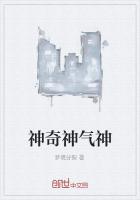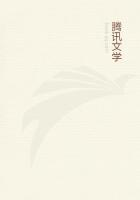The Bagobos of Mindanao, one of the Philippine Islands, offer a human sacrifice before they sow their rice. The victim is a slave, who is hewn to pieces in the forest. The natives of Bontoc in the interior of Luzon, one of the Philippine Islands, are passionate head-hunters. Their principal seasons for head-hunting are the times of planting and reaping the rice. In order that the crop may turn out well, every farm must get at least one human head at planting and one at sowing. The head-hunters go out in twos or threes, lie in wait for the victim, whether man or woman, cut off his or her head, hands, and feet, and bring them back in haste to the village, where they are received with great rejoicings. The skulls are at first exposed on the branches of two or three dead trees which stand in an open space of every village surrounded by large stones which serve as seats. The people then dance round them and feast and get drunk. When the flesh has decayed from the head, the man who cut it off takes it home and preserves it as a relic, while his companions do the same with the hands and the feet. Similar customs are observed by the Apoyaos, another tribe in the interior of Luzon.
Among the Lhota Naga, one of the many savage tribes who inhabit the deep rugged labyrinthine glens which wind into the mountains from the rich valley of Brahmapootra, it used to be a common custom to chop off the heads, hands, and feet of people they met with, and then to stick up the severed extremities in their fields to ensure a good crop of grain. They bore no ill-will whatever to the persons upon whom they operated in this unceremonious fashion. Once they flayed a boy alive, carved him in pieces, and distributed the flesh among all the villagers, who put it into their corn-bins to avert bad luck and ensure plentiful crops of grain. The Gonds of India, a Dravidian race, kidnapped Brahman boys, and kept them as victims to be sacrificed on various occasions. At sowing and reaping, after a triumphal procession, one of the lads was slain by being punctured with a poisoned arrow. His blood was then sprinkled over the ploughed field or the ripe crop, and his flesh was devoured. The Oraons or Uraons of Chota Nagpur worship a goddess called Anna Kuari, who can give good crops and make a man rich, but to induce her to do so it is necessary to offer human sacrifices. In spite of the vigilance of the British Government these sacrifices are said to be still secretly perpetrated.
The victims are poor waifs and strays whose disappearance attracts no notice.
April and May are the months when the catchpoles are out on the prowl. At that time strangers will not go about the country alone, and parents will not let their children enter the jungle or herd the cattle. When a catchpole has found a victim, he cuts his throat and carries away the upper part of the ring finger and the nose. The goddess takes up her abode in the house of any man who has offered her a sacrifice, and from that time his fields yield a double harvest. The form she assumes in the house is that of a small child. When the householder brings in his unhusked rice, he takes the goddess and rolls her over the heap to double its size. But she soon grows restless and can only be pacified with the blood of fresh human victims.
But the best known case of human sacrifices, systematically offered to ensure good crops, is supplied by the Khonds or Kandhs, another Dravidian race in Bengal. Our knowledge of them is derived from the accounts written by British officers who, about the middle of the nineteenth century, were engaged in putting them down. The sacrifices were offered to the Earth Goddess. Tari Pennu or Bera Pennu, and were believed to ensure good crops and immunity from all disease and accidents. In particular, they were considered necessary in the cultivation of turmeric, the Khonds arguing that the turmeric could not have a deep red colour without the shedding of blood. The victim or Meriah, as he was called, was acceptable to the goddess only if he had been purchased, or had been born a victimthat is, the son of a victim father, or had been devoted as a child by his father or guardian. Khonds in distress often sold their children for victims, considering the beatification of their souls certain, and their death, for the benefit of mankind, the most honourable possible. A man of the Panua tribe was once seen to load a Khond with curses, and finally to spit in his face, because the Khond had sold for a victim his own child, whom the Panua had wished to marry. A party of Khonds, who saw this, immediately pressed forward to comfort the seller of his child, saying, Your child has died that all the world may live, and the Earth Goddess herself will wipe that spittle from your face. The victims were often kept for years before they were sacrificed. Being regarded as consecrated beings, they were treated with extreme affection, mingled with deference, and were welcomed wherever they went. A Meriah youth, on attaining maturity, was generally given a wife, who was herself usually a Meriah or victim; and with her he received a portion of land and farm-stock. Their offspring were also victims. Human sacrifices were offered to the Earth Goddess by tribes, branches of tribes, or villages, both at periodical festivals and on extraordinary occasions. The periodical sacrifices were generally so arranged by tribes and divisions of tribes that each head of a family was enabled, at least once a year, to procure a shred of flesh for his fields, generally about the time when his chief crop was laid down.

